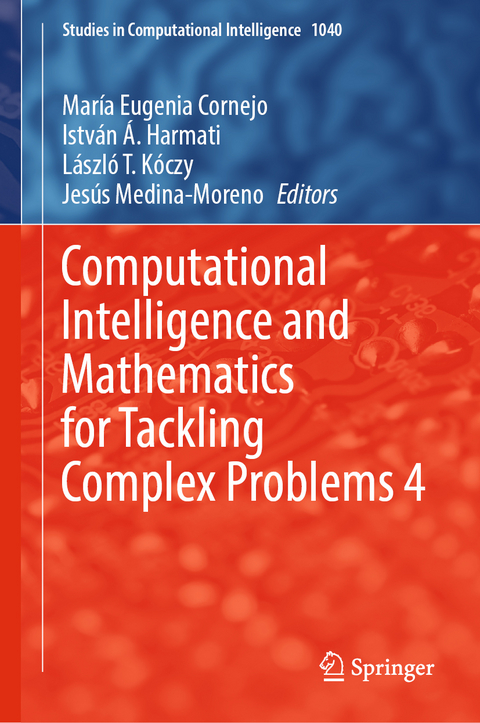
Computational Intelligence and Mathematics for Tackling Complex Problems 4
Springer International Publishing (Verlag)
978-3-031-07706-7 (ISBN)
The recent book of the series continues the collection of articles dealing with the important and efficient combination of traditional and novel mathematical approaches with various computational intelligence techniques, with a stress of fuzzy systems, and fuzzy logic.
Complex systems are theoretically intractable, as the need of time and space resources (e.g., computer capacity) exceed any implementable extent. How is it possible that in the practice, such problems are usually manageable with an acceptable quality by human experts? They apply expert domain knowledge and various methods of approximate modeling and corresponding algorithms. Computational intelligence is the mathematical tool box that collects techniques which are able to model such human interaction, while (new) mathematical approaches are developed and used everywhere where the complexity of the sub-task allows it. The innovative approaches in this book give answer to many questions on how to solve "unsolvable" problems.
Decidability of real-valued S4 Go¨del logic.- Basic logic versus multi-adjoint logic.- Fuzzy logic programming with generalized quantifiers.- Fuzzy relations: the fundament for fuzzy rough approximation, fuzzy concept analysis and fuzzy mathematical morphology.- Information bireducts and its relationship with reducts.- On the applicability of fuzzy lines in circular Hough transform in lesion segmentation on liver CT images.- Directional properties of semi-aggregation functions.- Generalized Phi-Transform of Aggregation Functions on Bounded Lattices.- Sugeno Integral for Atanassov Intuitionistic Fuzzy Sets.- Facilitating the simulation of domestic energy systems through linguistic representations.- Experiments with the Discrete Bacterial Memetic Evolutionary Algorithm for solving the Cumulative Capacitated Vehicle Routing Problem.- Fuzzy Inference System-like Aggregation Operator (FISAO) for Fuzzy Signatures.- Context of a local congruence concept reduction.- One-sided concept latticesby blocks.- From Fuzzy Partitions to Riemannian Manifolds.- Discrete universal fuzzy integrals.- Energy determined membership function of viscoelastic models.- Advances in forgery detection of driving licences using truthfulness degrees.- A formal method for driver identification.- Analysis and identification of forensic events using non-parametric density estimation.- Fuzzy signature based model in material handling management.- On Choquet integral in ranking crimes.- The Effects of Knowledge Extraction Approaches on Cryptanalysis Studies and Analysis of the Success of Chaos-Based Countermeasures.
| Erscheinungsdatum | 22.09.2022 |
|---|---|
| Reihe/Serie | Studies in Computational Intelligence |
| Zusatzinfo | XII, 202 p. 31 illus., 20 illus. in color. |
| Verlagsort | Cham |
| Sprache | englisch |
| Maße | 155 x 235 mm |
| Gewicht | 481 g |
| Themenwelt | Informatik ► Theorie / Studium ► Künstliche Intelligenz / Robotik |
| Mathematik / Informatik ► Mathematik ► Analysis | |
| Technik | |
| Schlagworte | Computational Intelligence • ESCIM • ESCIM 2021 • Fuzzy Logic • Intelligent Systems • Mathematical Techniques and Computational Intelligence • Mathematics and Computational Intelligence |
| ISBN-10 | 3-031-07706-7 / 3031077067 |
| ISBN-13 | 978-3-031-07706-7 / 9783031077067 |
| Zustand | Neuware |
| Haben Sie eine Frage zum Produkt? |
aus dem Bereich


